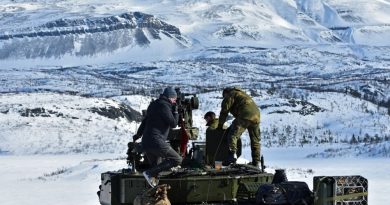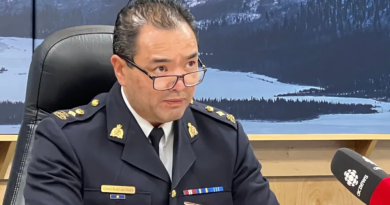Alaska Senate joins House in declaring Native languages emergency

The Alaska Senate joined the House on Wednesday in asking Gov. Bill Walker to recognize that the decline of Alaska Native languages is an emergency.
The Senate passed a resolution urging Walker to work with lawmakers and Alaska Native organizations to make the continued use of the languages a priority.
The state government recognizes 20 Alaska Native languages as official languages of the state, along with English.
A January report found that all the languages could lose their last speakers by the end of the century.
The report recommended the state declare a linguistic emergency.
The House passed a resolution urging the Walker to do that in March. And the Senate acted Wednesday.
“Action needs to be taken”
Sarah Dybdahl was among those who witnessed the vote. The cultural heritage and education manager for the Central Council of Tlingit and Haida Indian Tribes of Alaska said people have dedicated their lives to the languages.
“The Senate today in passing that recognizes the work of those individuals and also sends a clear message to the governor that action needs to be taken,” Dybdahl said.
The resolution doesn’t spell out what that action will be.
The report by the Alaska Native Language Preservation and Advisory Council said the state should make it policy to promote Alaska Native language schools wherever possible.
For much of the 20th century, the federal and state government promoted policies that suppressed Alaska Native language and culture. Those policies included forbidding the use of Alaska Native languages in village schools and boarding schools.
Suggestions abound
Dybdahl said the resolution is progress.
And she has some ideas on policies Walker could promote: “immersion schools, geographical signage of our place names getting our place names back on the land. There’s … multiple opportunities that could be outlined.”
The advisory council report also called on the state to create an Alaska Native school board to promote Alaska Native tribal and charter schools. And to direct all University of Alaska branches to provide high-quality instruction in the language of the region.
Dybdahl noted that one of the 20 languages – Eyak – lost its last fluent speaker in 2008.
“To lose a language is to lose a way of thinking,” Dybdahl said. “Our values and our culture and our protocols are all tied into our language. And when you start to lose that, those other aspects of who we are go with it.”
Gov. Walker paying attention
The Walker administration has been watching the resolutions progress.
“When you say the word ‘emergency,’ there’s a sense of immediacy to that,” Barbara Blake, Walker’s senior adviser for tribal affairs, fish and game and marine resources, said. “The governor’s office definitely recognizes the sense of immediacy and the urgency behind any language initiative.”
Blake said the administration will work with the council to follow up on the resolution, which could include steps like expanding the use of Alaska Native geographic names on signs.
It may also support legislation for other steps that require changes in state law.
Council member Lance Twitchell welcomed the resolution. He said at some point, the state must move from saying it’s a priority to changing the way it does things.
“I know some people don’t believe that the government should have any role in language revitalization,” Twitchell said. “But the difficult is that the government had an active role in language destruction.”
The House must decide whether to agree to changes the Senate made before the resolution is adopted.
Related stories from around the North:
Canada: Canadian government invests over $35M to preserve Indigenous languages in the North, Radio Canada International
Finland: Bilingual Finnish-Sámi teaching to start in Helsinki school, YLE News
Iceland: Arctic language survival – Iceland to the rescue?, Blog by Takeshi Kaji
Norway: Repressive policy deprived Sámi people of language, culture : Norway’s prime minister, The Independent Barents Observer
Sweden: Report sheds light on Swedish minority’s historic mistreatment, Radio Sweden
United States: Preserving Indigenous languages in Alaska, one grocery store at a time, Alaska Dispatch News



